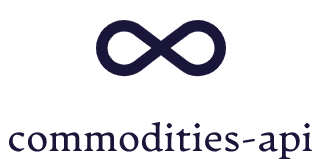Are you looking for an API that brings information about Newcastle Coal Futures? In this article, we’ll tell you one!
Coal is a fossil fuel that is used to produce electricity and heat. It is the most widely used fossil fuel, accounting for nearly 40% of global energy consumption. However, it is also the dirtiest fossil fuel, producing more carbon dioxide per unit than oil or natural gas. This gas is responsible for climate change, which is why coal has become a controversial topic in recent years.
If you’re unclear what an API is, allow us to clarify: Interface for Application Programming. APIs are interfaces that enable communication between various services and applications. An API functions by giving another system or application access to information or features that are otherwise inaccessible. APIs are utilized by numerous industries, including the worldwide coal industry, and are crucial for integrating external systems into larger systems or applications. In this instance, we’re referring to the Coal Prices API, which offers details on the situation of the Newcastle coal market right now.

Users can access data on recent pricing, historical prices, and more thanks to this API. Companies in the global coal sector can use this information to decide more effectively on pricing, production volume, and other factors.
Futures exchanges, where futures contracts are frequently traded, are governed by the Commodity Futures Trading Commission (CFTC). Futures contracts have become more and more popular in recent years due to their low margin requirements and high liquidity.
Commodities API
Developers can get real-time data on valued commodities through the Commodities API, which is offered by more than 10 different exchange rate data providers for commodities pricing. The API contains numerous endpoints, each of which serves a distinct purpose. The endpoint can send API requests for data on one or more currencies, data on daily changes, value conversion, and time series data for one or more currencies. It can also send API requests for the most recent commodity rate information for all or a selected subset of currencies.
Depending on the commodity you’re looking for, this API will provide you with a variety of replies. In this instance, we’re interested in finding out more about coal. The coal symbol offered by the API (COAL) can be used to look up information about it:
{"data":{"success":true,"timestamp":1683666360,"date":"2023-05-09","base":"USD","rates":{"COAL":0.008},"unit":{"COAL":"per tonne"}}}
One dollar is equal to 0.008 tonnes of coal, as you can see in the response.
All You Have To Do To Utilize It Is:
- Go to Commodities API and simply sign up, when you are done you’ll be ready to start using the API!
- Employ the different API endpoints using the symbols given by the API depending on what you are looking for.
- Once you meet your needed endpoint, make the API call by pressing the button “run” and see the results on your screen.
The Commodities-API offers data with a two-decimal place precision in more than 170 different currencies. You can perform up to 100.000 API requests each month and receive data updates every 60 seconds, depending on the subscription you choose. This API also comes with a seven-day trial period.


